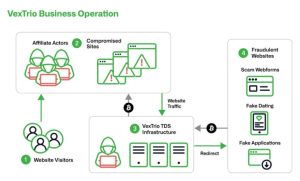Security professionals are still in high demand amid layoffs in other sectors, a new report finds.
” data-credit=”Image: CyberVista” rel=”noopener noreferrer nofollow”>
A new study of cybersecurity jobs finds that this particular skill set is still in high demand even during this time of layoffs.
Image: CyberVista
Cybersecurity professionals are in more demand than ever and jobs in this sector are expanding beyond traditional tech hubs, according to a new report. Larry Whiteside Jr., the president of International Consortium of Minority Cybersecurity Professionals, and Simone Petrella, CEO of cybersecurity training firm CyberVista, today released a report on the state of cybersecurity jobs. “Cybersecurity Jobs Report: Q2” shows the resilience of jobs in this sector during a time of layoffs and pay cuts due to the pandemic.
The report found that after a dip in May, security job listings on LinkedIn bounced back:
- April 2020: 261,545 open positions
- May 2020: 244,140 open positions
- June 2020: 348,082 open positions
The authors found the greatest demand for cybersecurity professionals in healthcare and financial services companies with 120,000 and 115,000 openings, respectively, on LinkedIn since the middle of June. Hospitals and healthcare organizations have suffered a spike in cyberattacks during the coronavirus with problems ranging from data breaches to a shutdown in daily operations.
SEE: SSL Certificate Best Practices Policy (TechRepublic Premium)
As demand continues to be high for security skills, the job market has expanded to cities other than San Francisco, New York, and Chicago. These cities have seen both new workers move in and a healthy level of security jobs:
- Denver, CO: 6,337 open positions
- Phoenix, AZ: 4,089 open positions
- Austin, TX: 3,686 open positions
Smaller cities that are generally even more affordable than the urban areas in the above list have a strong showing of security jobs, according to the report:
- Tucson, AZ: 2,210 open positions
- Colorado Springs, CO: 1,883 open positions
- Dayton, OH: 1,599 open positions
- Albuquerque, NM: 1,306 open positions
The report recommends that hiring manager take advantage of the remote work trend to broaden the scope of candidate searches:
“Organizations no longer have to limit themselves to hiring new talent within a limited physical proximity. This physical proximity component has created an inability for companies to always hire the most diverse talent for the position. Therefore, this helps increase the likelihood that organizations can more aggressively pursue diversity and inclusion initiatives given that people of color, women, or other underrepresented groups may not have previously had access to cities with the highest cost of living in the country.”
Remote hiring allows companies to tap into geographies beyond their HQs or other business locations, opening the door for candidates that may not be as represented in those geographies, Petrella said.
When bringing on a new worker via a remote hiring process, Petrella recommended that hiring managers plan to spend double the amount of time normally allocated for educating a new worker on the business, its history, and culture.
“They have never (and may never) set foot in your office so making them connected to your company and it’s mission is priority one,” she said. “Regardless of what role they’ve been hired into, it’s imperative they understand the context of what they’ve been hired to do and how that fits into the objectives of the business.”
The report authors also recommend hiring from within and upskilling and reskilling current employees as useful tactics to fill open positions. Also, considering candidates who have security certifications or offering certification programs to existing employees is another way to expand the candidate field.
Also see
How to become a cybersecurity pro: A cheat sheet
(TechRepublic)
Social engineering: A cheat sheet for business professionals (free PDF) (TechRepublic)
Shadow IT policy (TechRepublic Premium)
Online security 101: Tips for protecting your privacy from hackers and spies (ZDNet)
All the VPN terms you need to know (CNET)
Source of Article




